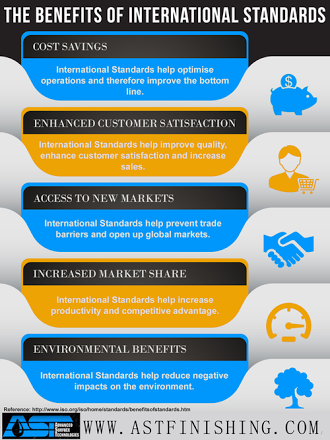In regards to ISO 9001, the only question you should be asking yourself is why you don’t already have it. Proven as the most effective means to increasing numbers across the board, ISO 9001 is the definitive guide on quality management around the world. In over 170 countries, the standards are applied to corporations in varying industries, further proving its effectiveness no matter the goal or purpose of the company. As time goes on, it will become far more detrimental not to have this certification than to make the investment early on.
Begun in 1959 when the United States Department of Defense published its own management standards, it continued to evolve into NATO standards, BSI standards and, finally, ISO standards in 1987. This has given it decades to coalesce into the powerhouse it is today. It is even currently undergoing final revisions as the 2015 edition nears launch at the end of the year.
Like a library, the ISO 9001 contains information and practices set forth by leading management experts that have dedicated their lives to developing a system that is guaranteed to succeed. Accordingly, research into companies that have adopted it shows increased return on assets, better financial performance and higher customer retention when compared directly to those companies without certification. There has also been a staggering increase of global adoption, growing from 450,000 to well over 1,000,000, over the course of 11 years.

While it may seem only essential for companies growing too big to handle without guidance, the standards are actually perfect for all sizes. Under the theory that good business practices are the same throughout well-performing companies of differing scope, the standards are taken as a measurable means to actively pursue and enact these practices. No matter the amount of people or its current market size, the ISO 9001 promotes continued growth and sustainability. In addition, it opens up the market further, with many companies refusing to work with brands unless they have certification.
One of the better aspects of implementation not often talked about is the fact that working toward certification, whether you manage to earn it or not, completely transforms your company for the better. It gives you an eight step plan with quantitative lists outlining exactly what you need to do to succeed. From the outside in and back out again, it gives you the best way to work with customers, work with your staff and work with your clients, addressing the fact that each one is interlinked. Without fixing one section, you can’t expect to fix the one directly tied to it. For instance, without solid management running the company, you can’t expect to have a united employee base. Without the employee base, your customers and clients will suffer.
As far as certification goes, you will need a third party to instigate the internal audit. Before that, however, you must first purchase the regulations and begin improving your internal structure. At a selected date, the auditors will come in and help you find the weaknesses in your current set up, specifically areas that do not meet ISO 9001 criteria. You’ll be given about six months to improve these. When the auditors return to find you haven’t improved, you’ll have to await a specified amount of time before re-applying. If you pass, you’ll be awarded ISO 9001 certification and are now free to pursue clients that would have otherwise remained off limits.
ISO 9001 certification is your first step toward joining the ever increasing global market. Designed so that any company adhering to its regulations will succeed, these standard are invaluable for new and old business owners alike. Though it may take an investment to get it started, the results are proven and beneficial, making not getting the certification far more detrimental to achieving numbers. Look to certification to better promote your brand, its people and its practices in the eyes of companies the world over.



